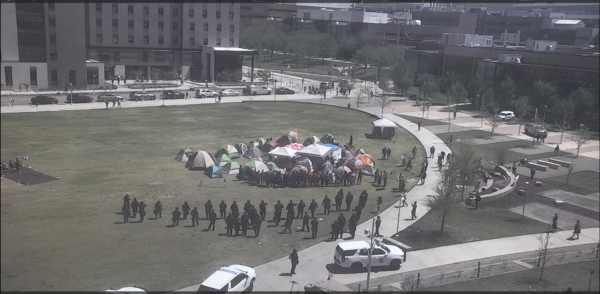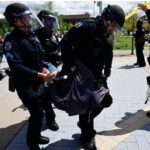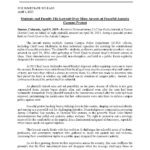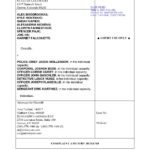
About the Auraria Campus Protest Civil Suit:
Rathod | Mohamedbhai LLC has filed a lawsuit in Denver District Court on behalf of eight plaintiffs arrested on April 26, 2024, during a peaceful protest held on Tivoli Quad at the Auraria Campus.
The lawsuit names multiple Auraria Campus Police Department (ACPD) officers, including Chief Jason Mollendor, in their individual capacities for violating the constitutional rights of peaceful protestors. The plaintiffs – students, professors, and community members – were arrested on April 26, 2024, after gathering at Tivoli Quad to protest Israel’s military actions in Gaza. Their demonstration was peaceful, non-disruptive, and held in a public forum explicitly designated for expressive activity.
ACPD Chief Jason Mollendor issued blanket dispersal orders requiring everyone to leave the campus. Protestors were not informed that the alleged issue was the presence of a small number of tents, nor were they offered a chance to remove them. No effort was made to determine who had placed the tents or whether any individual was in violation of campus policy. Instead, law enforcement treated the protest itself as unlawful.
As plaintiffs linked arms and sat peacefully on the grass, dozens of officers in riot gear surrounded them. Arrests began shortly after, and continued even after the tents had been voluntarily dismantled. Every plaintiff named in the lawsuit was arrested after the tents had been removed, undermining the justification that law enforcement were only there to enforce campus policy against tents.
Peaceful protest has long been a defining force in this country, shaping our national identity and serving as a powerful tool for challenging injustice. From indigenous communities protesting during Columbus Day parades, to Vietnam War protests, to the powerful Black Lives Matter demonstrations that called out systemic police violence. The right to protest is not a privilege reserved for the comfortable or the popular, it is a fundamental safeguard of democracy, especially when voices speak out against injustice.
This lawsuit stands firmly with that tradition. It challenges the unlawful arrest of students, professors, and community members who gathered to speak out against war and violence, exercising their constitutional rights in a public space designed for expressive activity.
As we face growing threats to free expression across the country, this case reaffirms the principle that the First Amendment does not disappear when the message challenges those in power. It is a reminder that public institutions are bound by the Constitution and that the right to speak freely, assemble peacefully, and challenge government action is not negotiable.




